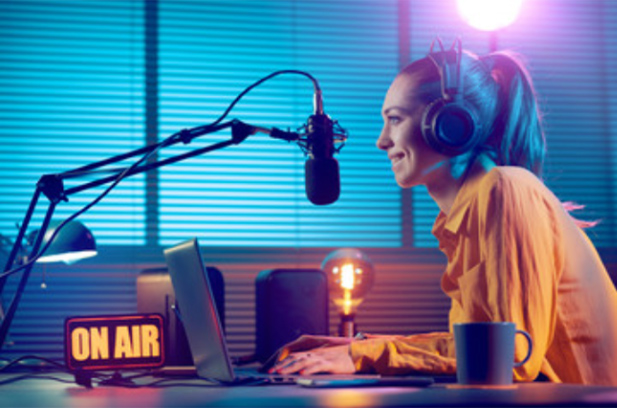In a previous piece, we covered some do’s and don’ts for first-time podcasters. This time out, we’ve got some guidelines for best practices during that first – and all subsequent, really – podcast recording session. Some of the below-listed tips are more difficult to implement than others, so consider them targets rather than strict rules to adhere to from the go. However, the higher your proficiency in these areas, the more smoothly
the verbal portions (i.e. most of) your podcast will flow.
Keep the energy levels up. By this, we don’t mean the proper podcaster must rah-rah his/her way through 40 minutes of audio. However, your interest and enthusiasm must be maintained at an even level throughout – harder to do than say (write?) for sure, but you find yourself soon becoming
accustomed to the rhythms of your podcast after a few episodes.
Also of high importance is the necessity to keep the mental and vocal energy levels up as well. Slackness in this area can lead to the tremendous podcast bugaboos of incessant “uh” sounds and voices trailing off into near-inaudibility, respectively. Nothing can deter the quality of a podcast more readily than
mistakes from low energy.
Enunciate. Heck, it doesn’t matter if you pronounce every word correctly, but you do want to aim for enunciating every word clearly. What can make this practice more difficult are over-caffeination, nervous energy or overexcitement. If you feel yourself getting too hyper, just employ the old radio trick and deliberately speak just a bit slower than your normal; odds are, that energy is naturally speeding you back up to normal speed anyway.
Pay attention. Just as one can be “heard” smiling over the phone, the avid podcast listener can feel when one party is not paying attention to the other or has merely waited to make his/her own point. Paying attention can also help you avoid another no-no, which is stepping on other speakers – nothing
sounds worse on a podcast than two or more people attempting to speak over one another simultaneously. Once in a while, an interruption is necessary, but the truly attentive speaker will keep these to a minimum and, when interruptions do occur, they are less likely to come off as intrusive.
Avoid the rabbitholes. There’s a reason they’re called rabbitholes, as these conversational tangents are then no. 1 pitfall to the conversation-centered podcast. Yes, some spontaneity is essential to these podcasts and sometimes real value may be gotten from the serendipitous discovery, just as in actual
conversation. While you may believe (and technically speaking, you are correct) that you have all the time you need, you’ve got to reign in your podcast to a reasonable length.
An alternative to consciously avoiding rabbitholes is simply to give in: Go ahead, babble away! Have a full-on conversational riff trip to Wonderland if you like, but be prepared to cut everything not directly relevant during the editing process.



